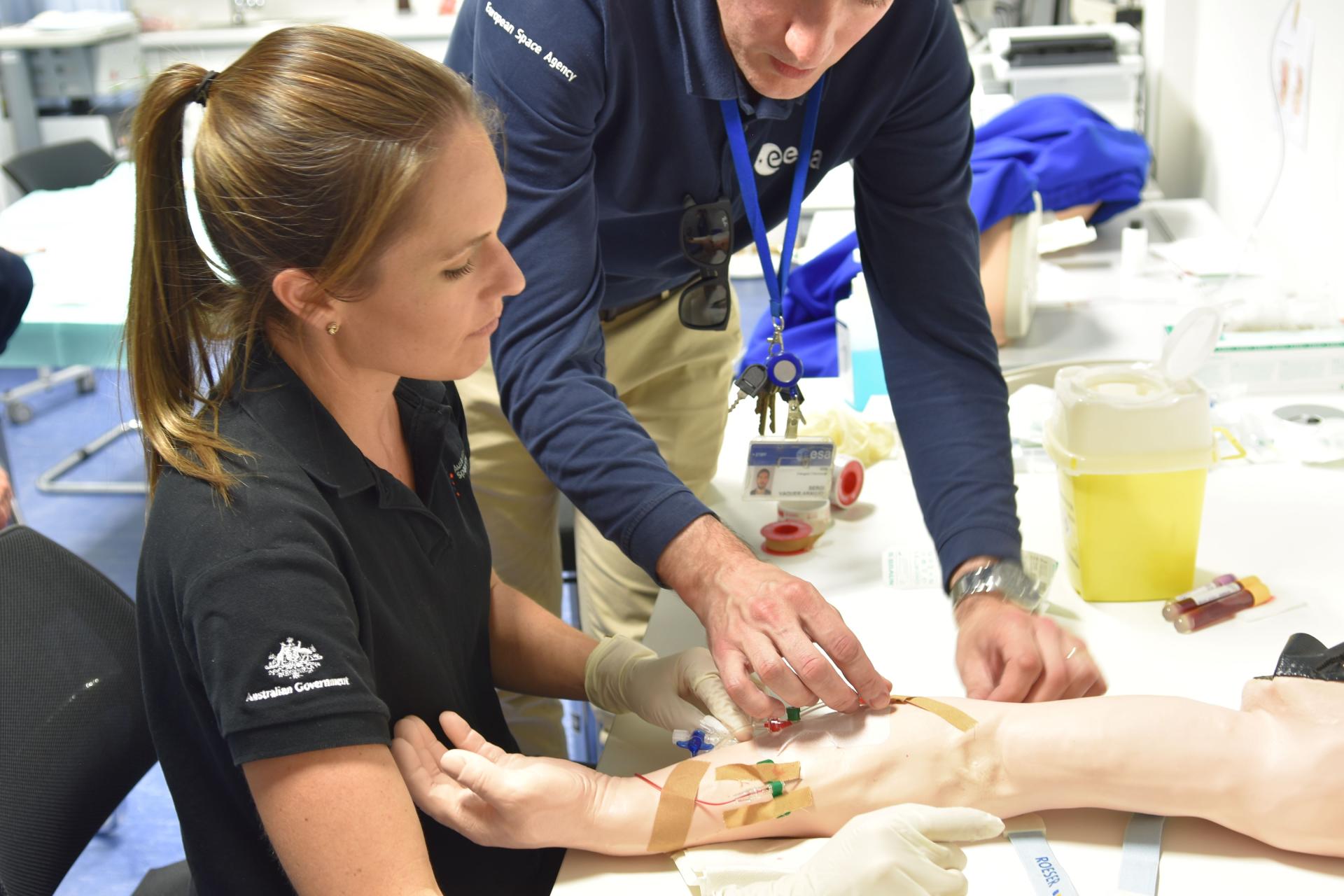The Australian Space Agency employee is around halfway through her year-long training at the European Astronaut Centre in Germany.
‘We need to know the basics around medical procedures – not just in case something goes wrong, but because astronauts are basically medical guinea pigs,’ Katherine explains.
‘In space, as your body adapts to weightlessness any medical issues you may have on Earth – such as osteoporosis, or muscle degradation – are put on fast forward and we can support research on that.’
More than 22,000 people applied to become an astronaut candidate like Katherine. She has her sights firmly set on living out her childhood dream of going to space.
‘I have always dreamed of being an astronaut,’ Katherine says.
‘When I was young, it was for the adventure but after more than a decade working in space it’s now because I know the role it plays in tackling real-world problems. The work and research involved in going to space prompts development of new knowledge that can benefit our society, environment and science.’

When Katherine completes her intensive training, she’ll receive basic training certification. That will qualify her for assignment on missions to the International Space Station.
The Mum-of-two said one of the most exciting exercises has been learning how to conduct space walks.
‘Training for space walks involves getting in scuba gear in a pool and simulating missions with other ASCANS, such as installing scientific experiments and new modules for the ISS.’
The next six months will include intense exercises, such as centrifuge training – to study how the body reacts to hyper-G environments.
“I’m excited – not just for me – but for what my training and experience can unlock for Australian scientists, engineers and operators, and all the value that can bring.’

History made
Australian woman Katherine Bennell-Pegg to be trained as an astronaut by European Space Agency

